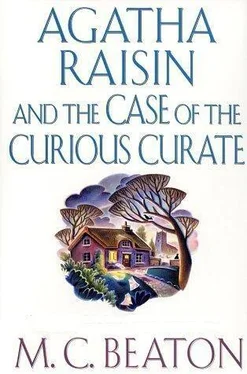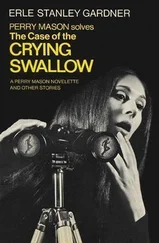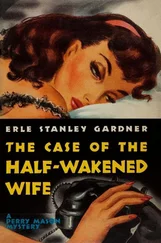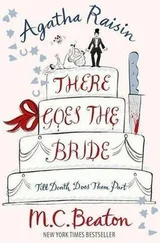M.C. Beaton - The Case of the Curious Curate
Здесь есть возможность читать онлайн «M.C. Beaton - The Case of the Curious Curate» весь текст электронной книги совершенно бесплатно (целиком полную версию без сокращений). В некоторых случаях можно слушать аудио, скачать через торрент в формате fb2 и присутствует краткое содержание. Жанр: Старинная литература, на английском языке. Описание произведения, (предисловие) а так же отзывы посетителей доступны на портале библиотеки ЛибКат.
- Название:The Case of the Curious Curate
- Автор:
- Жанр:
- Год:неизвестен
- ISBN:нет данных
- Рейтинг книги:5 / 5. Голосов: 1
-
Избранное:Добавить в избранное
- Отзывы:
-
Ваша оценка:
- 100
- 1
- 2
- 3
- 4
- 5
The Case of the Curious Curate: краткое содержание, описание и аннотация
Предлагаем к чтению аннотацию, описание, краткое содержание или предисловие (зависит от того, что написал сам автор книги «The Case of the Curious Curate»). Если вы не нашли необходимую информацию о книге — напишите в комментариях, мы постараемся отыскать её.
The Case of the Curious Curate — читать онлайн бесплатно полную книгу (весь текст) целиком
Ниже представлен текст книги, разбитый по страницам. Система сохранения места последней прочитанной страницы, позволяет с удобством читать онлайн бесплатно книгу «The Case of the Curious Curate», без необходимости каждый раз заново искать на чём Вы остановились. Поставьте закладку, и сможете в любой момент перейти на страницу, на которой закончили чтение.
Интервал:
Закладка:

M.C. Beaton
The Case of the Curious Curate
Agatha Raisin #13
2003, EN
∨ The Case of the Curious Curate ∧
1
Agatha Raisin was beginning to feel that nothing would ever interest her again. She had written to a monastery in France, to her ex-husband, James Lacey, who, she believed, was taking holy orders, only to receive a letter a month later saying that they had not heard from Mr. Lacey. Yes, he had left and promised to return, but they had heard or seen nothing of him.
So, she thought miserably, James had simply been sick of her and had wanted a divorce and had used the monastery as a way to get out of the marriage. She swore she would never be interested in a man again, and that included her neighbour, John Armitage. He had propositioned her and had been turned down. Agatha had been hurt because he had professed no admiration or love for her. They talked from time to time when they met in the village, but Agatha refused all invitations to dinner and so he had finally given up asking her.
So the news that the vicar, Alf Bloxby, was to get a curate buzzed around the village, but left Agatha unmoved. She went regularly to church because of her friendship with the vicar’s wife, regarding it more as a duty that anything to do with spiritual uplift. Also because of her friendship with Mrs. Bloxby, she felt compelled to attend the Carsely Ladies’ Society where the village women discussed their latest fund-raising projects.
It was a warm August evening when Agatha trotted wearily along to the vicarage. She looked a changed Agatha. No make-up, sensible flat sandals and a loose cotton dress.
Miss Simms, the secretary, read the minutes of the last meeting. They were all out in the vicarage garden. Agatha barely listened, watching instead how Miss Simms’s stiletto heels sank lower and lower into the grass.
Mrs. Bloxby had recently been elected chairwoman. Definitely the title of chairwoman. No chairpersons in Carsely. After tea and cakes had been passed round, she addressed the group. “As you know, ladies, our new curate will be arriving next week. His name is Tristan Delon and I am sure we all want to give him a warm welcome. We shall have a reception here on the following Wednesday. Everyone in the village of Carsely has been invited.”
“Won’t that be rather a crush?” asked Miss Jellop, a thin, middle-aged lady with a lisping voice and large protruding eyes. Agatha thought unkindly that she looked like a rabbit with myxomatosis.
“I don’t think there will be all that much interest,” said Mrs. Bloxby ruefully. “I am afraid church attendances are not very high these days.”
Agatha thought cynically that the lure of free food and drinks would bring them in hordes. She wondered whether to say anything, and then a great weariness assailed her. It didn’t matter. She herself would not be going. She had recently returned from London, where she had taken on a free-lance public relations job for the launch of a new soap called Mystic Health, supposed to be made from Chinese herbs. Agatha had balked at the name, saying that people didn’t want healthy soap, they wanted pampering soap, but the makers were adamant. She was about to go back to London for the launch party and intended to stay for a week and do some shopping.
At the end of the following week, Agatha made her way to Paddington Station, wondering, as she had wondered before, why London did not hold any magic for her anymore. It seemed dusty and dingy, noisy and threatening. She had not particularly enjoyed the launch of the new soap, feeling she was moving in a world to which she no longer belonged. But what was waiting for her in her home village of Carsely? Nothing. Nothing but domestic chores, the ladies’ society, and pottering about the village.
But when she collected her car at Moreton-in-Marsh Station and began the short drive home, she felt a lightening of her spirits. She would call on Mrs. Bloxby and sit in the cool green of the vicarage garden and feel soothed.
Mrs. Bloxby was pleased to see her. “Come in, Mrs. Raisin,” she said. Although she and Agatha had been friends for some time, they still used the formal “Mrs.” when addressing each other, a tradition of the ladies’ society, which fought a rearguard action against modern times and modern manners. “Isn’t it hot?” exclaimed the vicar’s wife, pushing a damp tendril of grey hair away from her face. “We’ll sit in the garden. What is your news?”
Over the teacups Agatha regaled her with a highly embroidered account of her experiences in London. “And how’s the new curate?” she finally asked.
“Getting along splendidly. Poor Alf is laid low with a summer cold and Mr. Delon has been taking the services.” She giggled. “I haven’t told Alf, but last Sunday there was standing room only in the church. Women had come from far and wide.”
“Why? Is he such a good preacher?”
“It’s not that. More tea? Help yourself to milk and sugar. No, I think it is because he is so very beautiful.”
“Beautiful? A beautiful curate? Is he gay?”
“Now why should you assume that a beautiful young man must be gay?”
“Because they usually are,” said Agatha gloomily.
“No, I don’t think he’s gay. He is very charming. You should come to church this Sunday and see for yourself.”
“I might do that. Nothing else to do here.”
“I hate it when you get bored,” said the vicar’s wife anxiously. “It seems to me that every time you get bored, a murder happens somewhere.”
“Murder happens every day all over the place.”
“I meant close by.”
“I’m not interested in murders. That last case I nearly got myself killed. I had a letter from that Detective Inspector Brudge in Worcester just before I left. He suggested I should go legit and set up my own detective agency.”
“Now that’s a good idea.”
“I would spend my days investigating nasty divorces or working undercover in firms to find out which typist has been nicking the office stationery. No, it’s not for me. Is this curate living with you?”
“We found him a room in the village with old Mrs. Feathers. As you know, she lives opposite the church, so we were lucky. Of course, we were prepared to house him here, we have plenty of room, but he would not hear of it. He says he is quite comfortably off. He has a small income from a family trust.”
“I’d better get back to my cats,” said Agatha, rising. “I think they prefer Doris Simpson to me.” Mrs. Simpson was Agatha’s cleaner, who looked after the cats when Agatha was away.
“So you will come to church on Sunday?” asked Mrs. Bloxby. “I am curious to learn what you make of our curate.”
“Why, I wonder,” said Agatha, her bear like eyes sharpening with interest. “You have reservations about him?”
“I feel he’s too good to be true. I shouldn’t carp. We are very lucky to have him. Truth to tell, I think my poor Alf is a little jealous. Though I said nothing about it, he heard from the parishioners about the crowds in the church.”
“Must be awful to be a vicar and to be expected to act like a saint,” said Agatha. “All right. I’ll be there on Sunday.”
When she got back to her cottage, Agatha opened all the windows and the kitchen door as well and let her cats, Hodge and Boswell, out into the garden. I don’t think they even missed me, thought Agatha, watching them roll on the warm grass. Doris comes in and feeds them and lets them in and out and they are perfectly happy with her. There was a ring at the doorbell and she went to answer it. John Armitage, her neighbour, stood there.
Читать дальшеИнтервал:
Закладка:
Похожие книги на «The Case of the Curious Curate»
Представляем Вашему вниманию похожие книги на «The Case of the Curious Curate» списком для выбора. Мы отобрали схожую по названию и смыслу литературу в надежде предоставить читателям больше вариантов отыскать новые, интересные, ещё непрочитанные произведения.
Обсуждение, отзывы о книге «The Case of the Curious Curate» и просто собственные мнения читателей. Оставьте ваши комментарии, напишите, что Вы думаете о произведении, его смысле или главных героях. Укажите что конкретно понравилось, а что нет, и почему Вы так считаете.












